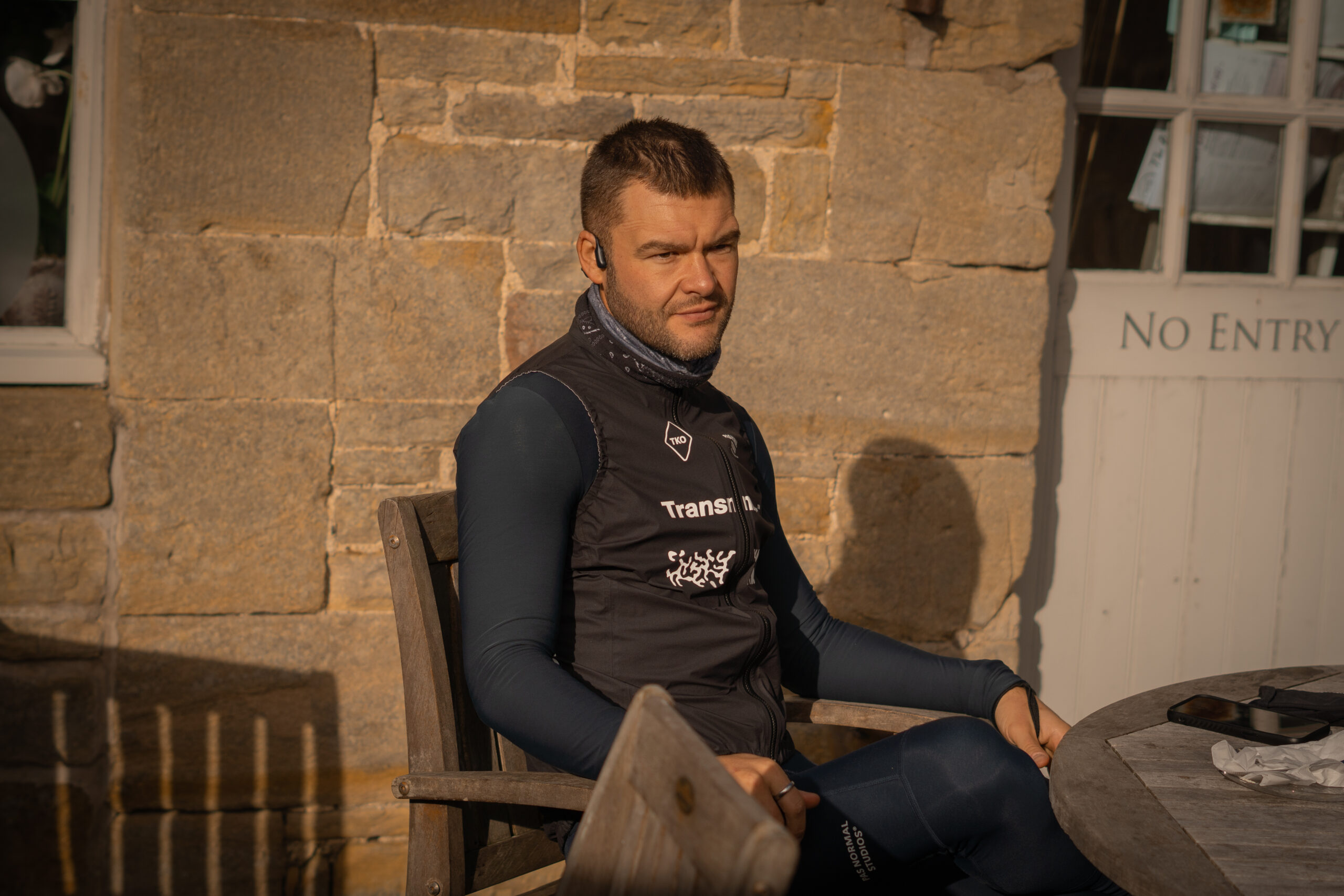I never thought I’d be writing this.
Cycling has been my escape, my safe place, and for the past year, the one thing that’s kept me focused through one of the most challenging periods of my life. But today, I’m in the middle of a fight I never asked for — one that’s about far more than a single race result. It’s about fairness, accessibility, and inclusion in sport.
A Year of Growth and Challenge
Just over a year ago, I was diagnosed with AuDHD — Autism and ADHD combined.
This diagnosis helped me make sense of so many things I’d struggled with my whole life. It explained why certain environments overwhelm me, why I sometimes shut down under pressure, and why I’ve always felt like I had to fight to “be normal.”
Growing up, I heard the same messages over and over:
“Be normal.”
“Act like everyone else.”
“Don’t be different.”
So I tried.
I masked my challenges, forced myself into situations that didn’t feel right, and did everything I could to fit in.
But inside, it was exhausting — and over time, it took a huge toll on my mental health and self-esteem.
When I discovered cycling, everything changed.
How Cycling Saved Me
For the first time, I found something that truly clicked.
It wasn’t just another hobby I’d pick up and abandon — it became my passion.
Cycling gave me structure, routine, and a space where I felt in control.
It gave me goals to chase, milestones to work towards, and a reason to get up every day and keep going.
This year, I set myself the ultimate target: qualifying for the BAR (Best All-Rounder) in time trialling.
Every ride, every training session, and every sacrifice I’ve made has been building towards that single goal.
For me, it wasn’t just about a title or a place on a leaderboard.
It was proof that I can commit to something long-term, that my diagnosis doesn’t define what I’m capable of, and that I belong in this sport.
The Rule That Stopped Me
On 10 August 2025, I raced in the Barnesbury CC 50-mile time trial.
At the start line, I was wearing my Shokz OpenRun Pro 2 bone conduction headphones — a device I use passively, without audio, purely as a sensory aid to manage overwhelming environments.
Here’s why they matter:
- They don’t play music or audio.
- They don’t block my hearing or reduce awareness of my surroundings.
- They don’t give me any performance advantage.
- They simply help me regulate my sensory input so I can focus and race safely.
Unfortunately, after the event, I was informed that I had breached Regulation 19 of the Cycling Time Trials rulebook, which states that competitors must not “use any audio equipment except prescribed hearing aids.”
I explained my situation and my diagnosis immediately after the race.
At first, it seemed resolved.
But weeks later, the case was reopened, investigated, and I was presented with two options:
- Accept a disqualification from the race, ending the matter quietly.
- Reject the sanction and proceed to a full disciplinary hearing.
Why I Chose to Fight
Accepting the disqualification would have been easier.
But it would also mean losing my BAR qualification — the goal I’ve worked towards all year.
More importantly, it would mean accepting a ruling that I believe is fundamentally wrong.
Here’s why I’m fighting this:
1. I was not “using” audio equipment.
Regulation 19 bans use of audio equipment.
I was wearing a device passively, not playing sound or using any audio functions — no different from carrying a mobile phone or Garmin head unit that could play music but isn’t in use.
2. The rule is outdated and inconsistent.
- Many TT helmets completely cover riders’ ears, reducing awareness far more than bone conduction headphones — yet these are allowed.
- No consistent checks are carried out at start lines to enforce the rule equally.
- This creates unfair and inconsistent application.
3. It discriminates against neurodivergent athletes.
Under the Equality Act 2010, organisations like CTT have a legal duty to make reasonable adjustments so disabled athletes are not placed at a disadvantage.
For me, bone conduction headphones are a vital sensory aid — the only thing that allows me to manage overwhelming race environments.
By banning them outright, CTT is effectively telling me:
“You can only take part if you hide who you are.”
That’s exclusion, not inclusion.
How This Feels
This isn’t just about rules or regulations.
This is deeply personal.
Cycling has been the first sport I’ve ever truly managed to stick with.
It’s my passion, my outlet, and my lifeline.
Now, because of this decision, it feels like that’s been taken away from me.
Without this result, I’ll lose my BAR qualification — the very thing I’ve spent the past year building towards.
It feels like I’ve been pushed right back to the beginning of my journey.
As someone who has spent a lifetime being told to “act normal,” this decision sends the same message I’ve always heard:
“You don’t belong here.”
“You can’t be yourself.”
“You have to hide your differences to take part.”
And that hurts more than I can put into words.
Looking Ahead
Right now, I honestly can’t see myself racing in a CTT event again.
But I will not let this pass quietly.
I’ve chosen to reject the disqualification and take my case to a full disciplinary hearing.
I’ll present evidence, witnesses, and arguments — and I’m prepared to fight this not just for myself, but for every neurodivergent athlete who has faced similar exclusion.
Sports need to evolve, not cling to outdated rules that don’t reflect today’s technology or understanding of neurodiversity.
This fight isn’t just about headphones.
It’s about inclusion, acceptance, and the right for everyone to take part in sport without hiding who they are.
Why This Matters
My case is about more than one race or one rulebook.
It’s about showing that cycling — and sport as a whole — can be a place for everyone.
If we want to grow participation, we have to make sure no one is left on the sidelines because of a lack of understanding or willingness to adapt.
I don’t want any other rider to feel the way I do right now — excluded, unheard, and pushed out of the sport they love.
How You Can Help
- Share this story to raise awareness of the need for inclusion in sport.
- Support neurodivergent athletes by listening, learning, and speaking up for change.
- If you’ve experienced similar challenges, please reach out to me. Together, we can push for progress.
Final Thoughts
This is the hardest fight I’ve ever faced.
It will be public.
It could get messy.
And it’s deeply personal.
But if it leads to change — if it helps create a future where no one else has to experience this kind of exclusion — then it will be worth it.
Cycling saved me once, it could save others.
And I won’t let anyone take that opportunity away.


 using WordPress and
using WordPress and
4 Responses
Aw Kyle I remember a very troubled young man walking the beach together 💙 good luck son fight this decision never give up x
Disgraceful decision! Hopefully the sticklers for the rules will pull their heads out of their arses and get with the times. It’s probably worth contacting some well known cyclists to help raise awareness of your situation. Best of luck in fighting your case mate 👍
As a neurodivergent cyclist (ADHD) and a practicing Occupational Therapist, i feel this, though i dont race, i do empathise with you and the reasons for needing these adjustments. There are certain things i do on my rides that support in ensuring i can focus on my ride and what i am doing. Inclusion benefits all. Hope you get the justice that is deserved and their decision overturned.
As someone with a son who is autistic and struggles with exactly this kind of situation, often wearing in ear phones or meta type glasses to take away ‘white-noise’ that many don’t notice, I find this an appalling and quite frankly useless approach by CTT, they should hang their heads.
Why rather than persecute an athlete and hide behind outdated rules, don’t they support and champion your cause and look to include rather than exclude?
Honestly infuriating attitude by CTT!